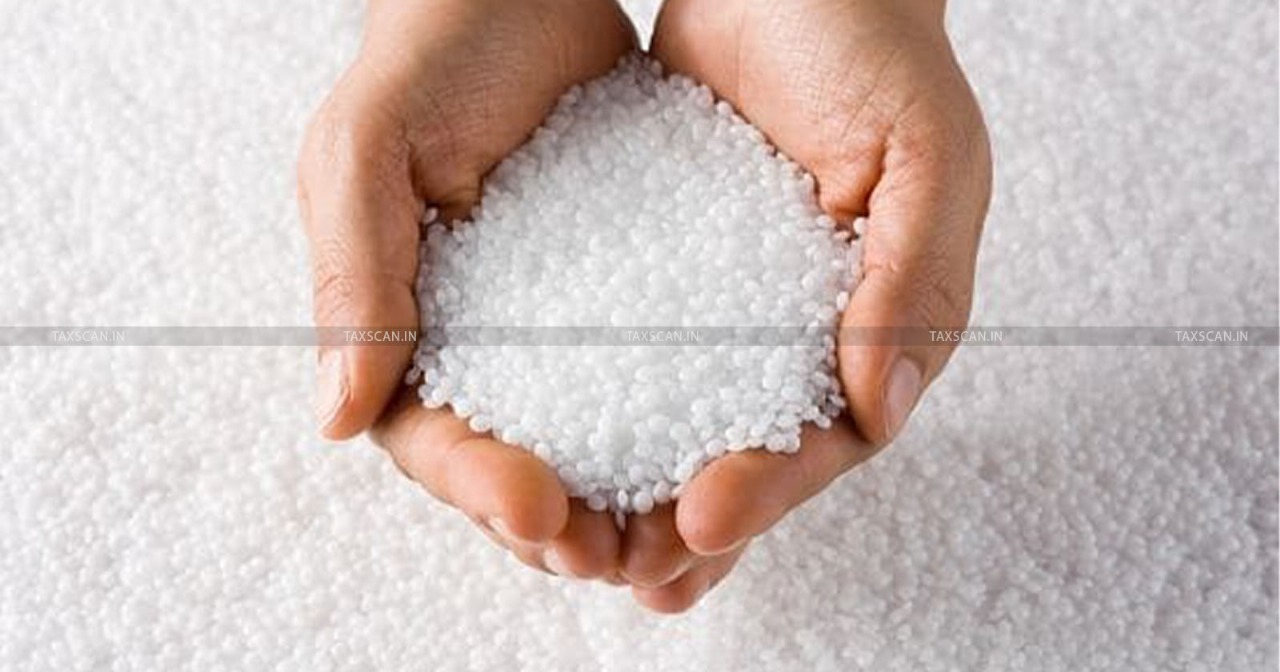Declaration of Value of Goods Cannot be Treated as Suppression Merely Being Incorrect: CESTAT quashes Penalty under Customs Act [Read Order]
The Tribunal held that the penalty has been imposed upon Arjinder Singh Gulati for making incorrect declaration of value of the goods in import clearance
![Declaration of Value of Goods Cannot be Treated as Suppression Merely Being Incorrect: CESTAT quashes Penalty under Customs Act [Read Order] Declaration of Value of Goods Cannot be Treated as Suppression Merely Being Incorrect: CESTAT quashes Penalty under Customs Act [Read Order]](https://images.taxscan.in/h-upload/2025/07/04/2058909-2041840-penalty-us-2711c-estimated-itat-penalty-absence-concealment-taxscan-1.webp)
The New Delhi Bench of Customs, Excise, and Service Tax Appellate Tribunal (CESTAT) has ruled that the declaration of the value of goods was a bonafide declaration and merely because it is ultimately found to be incorrect will not mean that the valuation was with a bad motive not declared correctly and quashed the penalty under the Customs Act, 1962.
Goldstar Glasswares Pvt. Ltd., the appellant cjhallenged the part of the orderpassed by the Principal Commissioner of Customs, ICD, TKD, New Delhi that rejects the assessable value of goods declared by the appellant under rule 12 of the Customs Valuation (Determination of the Value of Imported Goods) Rules 2007 and re-determines the same under rule 5 of the Valuation Rules read with section 14 of the Customs Act, 19624.
 Also Read:Removal of PPCP to Moulders for Making Battery Parts Not Trading: CESTAT Rules Rule 6 Cenvat Credit Reversal Inapplicable [Read Order]
Also Read:Removal of PPCP to Moulders for Making Battery Parts Not Trading: CESTAT Rules Rule 6 Cenvat Credit Reversal Inapplicable [Read Order]
The order also confiscates the seized 9900 kgs of Melamine valued at Rs. 7,16,873/- under rule 111(m) of the Customs Act with an option of payment of redemption fine in lieu of confiscation. The order also holds that the goods of which assessable value has been redetermined are also liable to confiscation but as the goods are not available for confiscation, redemption fine is not required to be imposed. The order also confirms recovery of anti-dumping duty from the appellant under section 28(4) of the Customs Act and also imposes penalty upon the appellant under sections 114A and 112(a) and (b) of the Customs Act.
Customs Appeal has been filed by Arijinder Singh Gulati, Director of the appellant to assail that part of the order passed by the Principal Commissioner that imposes penalty upon him under sections 114AA and 112(a) and (b) of the Customs Act.
The appellant is a private limited company with Arjinder Singh Gulati and Nirmal Paul Gulati as Directors of the Company. The appellant started the unit in 1988 and manufactured Opel Glassware but the unit was subsequently closed. Thereafter, the appellant started manufacturing melamine table wares (crockery) by using food grade melamine, which is manufactured through high pressure process.
How to deal with GST special audit and departmental audit? Register Now
Initially, the appellant procured majority of melamine from Gujarat State Fertilizer and Chemicals Ltd but later the appellant imported food grade melamine from overseas suppliers in China.
Anti-dumping duty imposed on the import of melamine from China by Notification dated 16.11.2004 was extended till 01.10.2009 by Notification dated 15.01.2009 and it was further extended till 01.04.2010 by Notification dated 01.10.2009. The reason to impose anti-dumping duty was to curtail the import of melamine at a price lower than the domestic market price. However, in terms of the Notification, there would be no levy of antidumping duty if the landed value was more than the value stipulated in the Notification.
A show cause notice was issued to the appellant after two and half years from the recording of the statement of the Director on 23.10.2015 raising demand of anti-dumping duty under section 28 of the Customs Act with interest and penalty for the period from 25.04.2013 to 29.05.2015 alleging suppression of facts on the part of the appellant.
The assessee submitted that there is no allegation that the assessee made any mis-declaration with respect to the description, classification, quality or quantity. In fact, the assessee even mentioned the Notification in the Bills of Entry under which anti-dumping duty was leviable if the goods were imported at a price lower than stipulated in the Notification. It is, therefore, evident that allegation of suppression cannot be levied against the assessee, and hence the extended period of limitation could not have been invoked.
The two member bench of Justice Dilip Gupta (President) and Hemambika R. Priya (Technical Member) has observed that merely because the value declared by the appellant has not been found to be correct, it cannot be said that the appellant had suppressed material facts from the department. It cannot, therefore, be alleged that the appellant had suppressed the value of the goods, much less suppressed it with an intention to evade payment of customs duty.
The Tribunal held that the penalty has been imposed upon Arjinder Singh Gulati for making incorrect declaration of value of the goods in import clearance.
Further held that “the declaration of the value of goods was a bonafide declaration and merely because it is ultimately found to be incorrect will not mean that the valuation was with a bad motive not declared correctly. Penalty under sections 112 and 114AA of the Customs Act could not, therefore, have been imposed upon Arjinder Singh Gulati.”
Support our journalism by subscribing to Taxscan premium. Follow us on Telegram for quick updates


